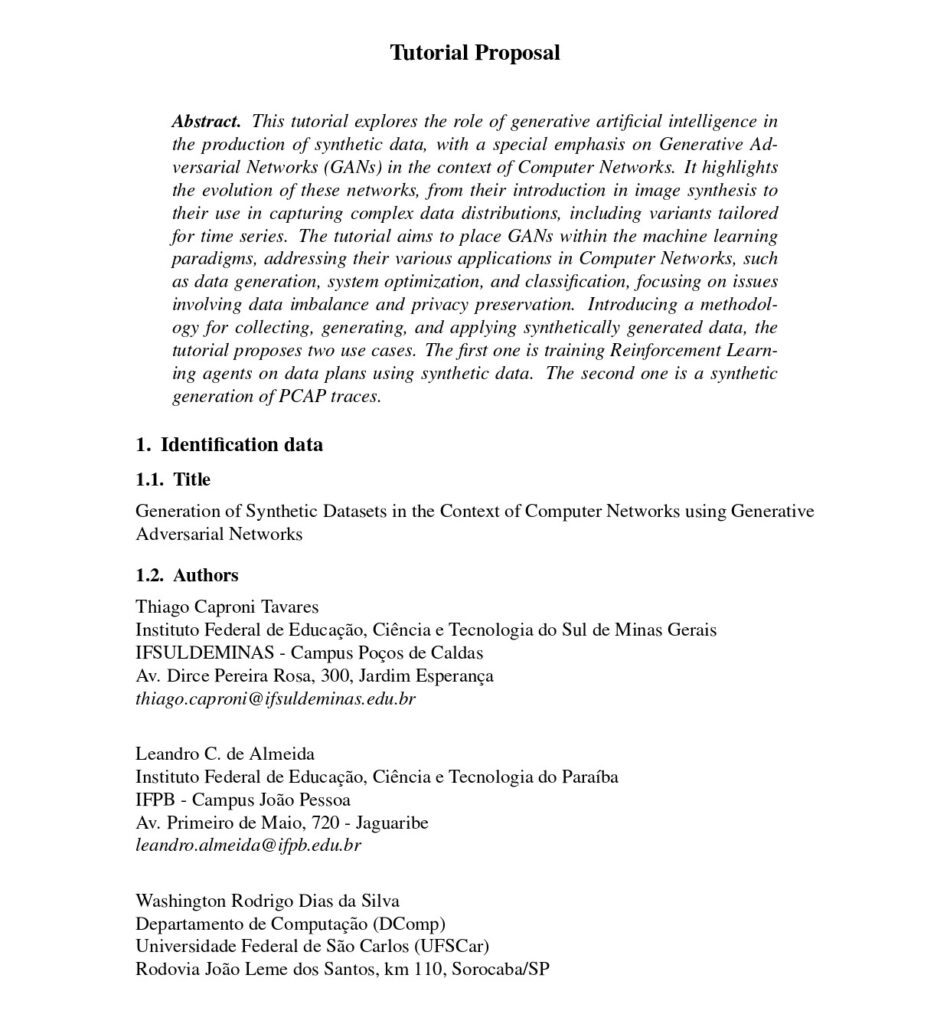The escalating demand for network resources, driven by real-time applications and data-intensive activities has presented considerable challenges in managing and optimizing network performance. One persistent issue is the scarcity of freely available network traces, primarily due to heightened security concerns, since obtaining real PCAP files from real networks may contain sensitive information about the users and private topology/protocol information of the collected environment. At SMARTNESS, several researchers (Thiago Caproni Tavares, Leandro C. de Almeida, Washington Rodrigo Dias da Silva, Ariel Góes de Castro, Christian Esteve Rothenberg and Fábio Luciano Verdi) are investigating these challenges and the benefits, limitations, and opportunities of using Generative Adversarial Networks (GANs).
To this end, two tutorials about GANs were proposed and accepted at the Brazilian Symposium on Computer Networks and Distributed Systems (SBRC) 2024 and at the IEEE International Conference on Network Softwarization (NetSoft) 2024. Our tutorials delve into GANs, initially pivotal in image synthesis but now extended to computer networks, offering nuanced capabilities in generating synthetic data and facilitating data-driven predictions, classifications, and simulations. The utility of GANs in computer networks, specifically in generating synthetic data while preserving privacy and enhancing dataset representativeness, is discussed. The tutorials presented within the chapter elucidates on generating synthetic time series data using GANs, with practical applications ranging from telemetry data generation to the creation of synthetic Packet Capture (PCAP) files. It further explores the use of synthetic data in training Reinforcement Learning (RL) agents for resource optimization, highlighting the broader implications and emerging trends in the application of generative AI in computer networks.
The first tutorial was presented at SBRC 2024, under the title “Generation of Synthetic Datasets in the Context of Computer Networks using Generative Adversarial Networks”, which was developed by the authors: Thiago Caproni Tavares (IFSULDEMINAS), Ariel Góes de Castro (UNICAMP), Washington Rodrigo Dias da Silva (UFSCAR), Christian Esteve Rothenberg (UNICAMP) and Fábio Luciano Verdi (UFSCAR). Other authors: Leandro C. de Almeida (IFPB).
Meanwhile, the tutorial accepted at NetSoft 2024 will be presented during the congress from June 24th to 28th in Saint Louis, USA. SMARTNESS authors: Thiago Caproni Tavares (IFSULDEMINAS), Ariel Góes de Castro (UNICAMP), Washington Rodrigo Dias da Silva (UFSCAR), Christian Esteve Rothenberg (UNICAMP) and Fábio Luciano Verdi (UFSCAR). Other authors: Leandro C. de Almeida (IFPB).







